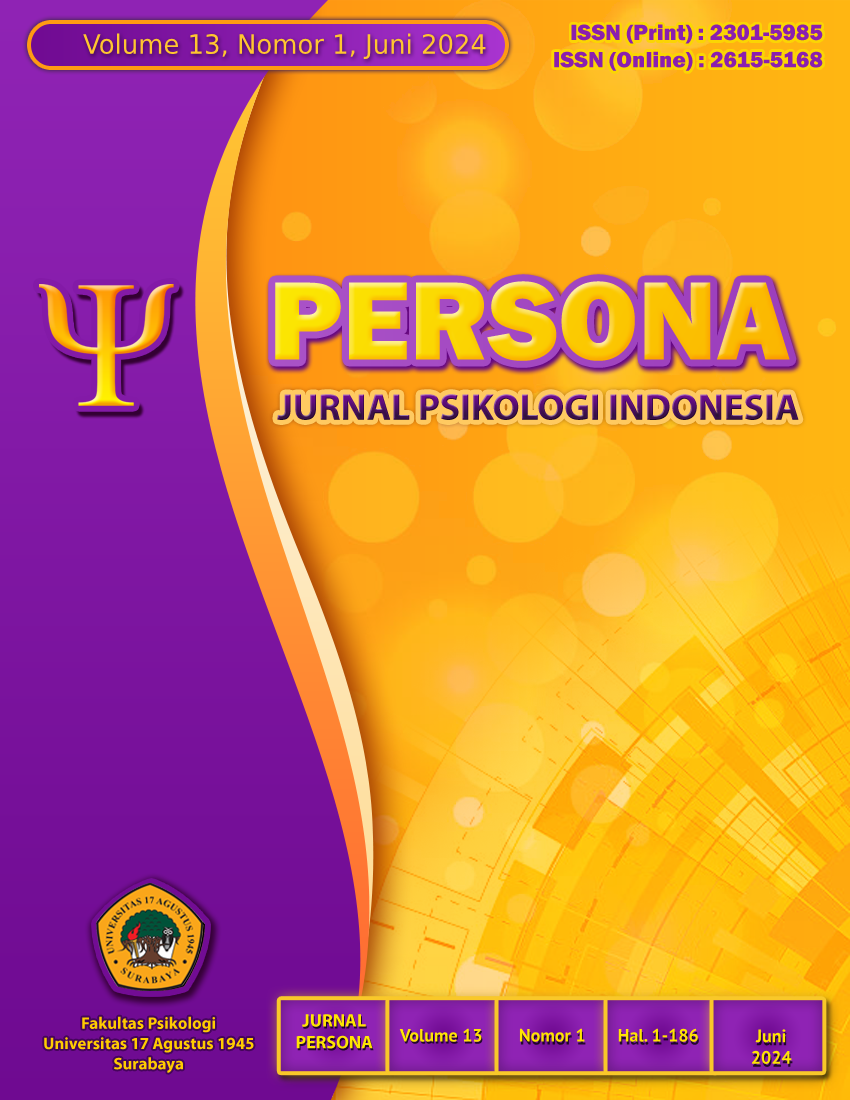Social self-efficacy sebagai mediator dampak pola asuh autoritatif dan social-emotional skills pada perilaku prososial remaja
Social self-efficacy as a mediator of the impact of authoritative parenting style and social-emotional skills on adolescent prosocial behavior
DOI:
https://doi.org/10.30996/persona.v13i1.10935Keywords:
social self-efficacy, social-emotional skills, prosocial behavior, authoritative parentingAbstract
The purpose of this study was to determine whether or not there is a direct and indirect influence between social-emotional skills, authoritative parenting, and social self-efficacy on the prosocial behavior of high school students in the Sidoarjo Regency. This type of research uses an ex post facto quantitative research model using a survey in Sidoarjo Regency. The sampling technique used a multistage with a total of 375 respondents. The data collection method used a modification of the Adolescent social self-efficacy scale (α = 0.760), Parenting style scale (α = 0.720), Social-emotional learning competencies scale (α = 0.793), and Prosocial Tendencies Measurements (α = 0.734). The data were analyzed using a path analysis model using IBM SPSS 25 and the Sobel online calculator to validate the significance of the indirect effect. The results of this study found that both social-emotional skills, authoritative parenting, and social self-efficacy have a positive and partially significant direct influence on prosocial behavior. Furthermore, social-emotional skills and authoritative parenting are known to have an indirect influence through social self-efficacy as a mediator on the prosocial behavior of adolescent students. There is a positive and significant direct influence between authoritative parenting and social-emotional skills on prosocial behavior, and there is a significant indirect influence through social self-efficacy as a mediator variable of authoritative parenting and social-emotional skills on adolescent prosocial behavior.
Downloads
Downloads
Published
Issue
Section
License
The author who will publish the manuscript at Persona: Jurnal Psikologi Indonesia, agree to the following terms:
1. Authors retain copyright and grant the journal right of first publication with the work simultaneously licensed under a Creative Commons Attribution ShareAlike License that allows others to share the work with an acknowledgment of the work's authorship and initial publication in this journal.
2. Authors are able to enter into separate, additional contractual arrangements for the non-exclusive distribution of the journal's published version of the work (e.g., post it to an institutional repository or publish it in a book), with an acknowledgment of its initial publication in this journal.
3. Authors are permitted and encouraged to post their work online (e.g., in institutional repositories, pre-prints sites or on their website) prior to and during the submission process, as it can lead to productive exchanges, as well as earlier and greater dissemination of published work






